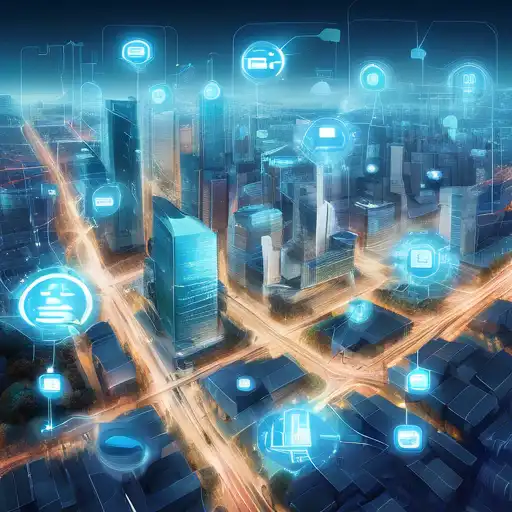Introduction to IoT in Smart Cities
The Internet of Things (IoT) is revolutionizing the way we live, work, and interact with our urban environments. By connecting devices, sensors, and systems across cities, IoT is paving the way for smarter, more efficient urban spaces known as Smart Cities. This article explores the pivotal role of IoT in transforming urban landscapes into interconnected ecosystems that enhance the quality of life for their inhabitants.
Key Components of IoT in Smart Cities
At the heart of Smart Cities are several key IoT components that work together to collect, analyze, and act on data in real-time. These include:
- Sensors and Devices: Embedded throughout the city to monitor everything from traffic flow to air quality.
- Connectivity: High-speed networks that enable seamless communication between devices and systems.
- Data Analytics: Advanced algorithms that process vast amounts of data to generate actionable insights.
- User Interfaces: Platforms that allow citizens and city officials to interact with IoT systems, such as mobile apps and dashboards.
Benefits of IoT in Smart Cities
The integration of IoT into urban infrastructure offers numerous benefits, including:
- Improved Efficiency: Optimizing traffic lights and public transport routes reduces congestion and saves time.
- Enhanced Sustainability: Smart energy grids and waste management systems minimize environmental impact.
- Increased Safety: Surveillance and emergency response systems are more responsive, keeping citizens safer.
- Better Quality of Life: From smart lighting to pollution monitoring, IoT makes cities more livable.
Challenges and Considerations
Despite its potential, the deployment of IoT in Smart Cities is not without challenges. Privacy concerns, cybersecurity risks, and the digital divide are significant hurdles that need to be addressed. Ensuring equitable access to technology and safeguarding data are paramount to the success of Smart Cities.
Future Prospects
The future of IoT in Smart Cities is bright, with advancements in AI and 5G technology set to further enhance urban living. As cities continue to grow, the role of IoT in creating sustainable, efficient, and inclusive urban environments will only become more critical.
For more insights into how technology is shaping our future, explore our articles on Digital Transformation and Urban Development.
